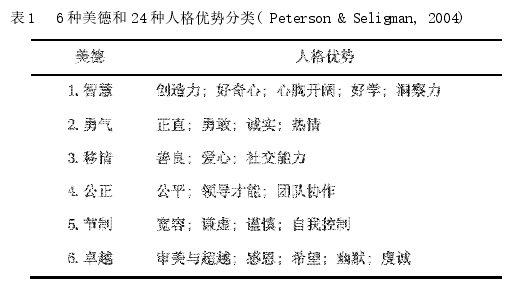摘 要
积极的人格品质是儒家文化的精髓,时至今日,这些人格品质对个体未来的发展依然起着重要作用。当下不少研究生因学业、人际关系处理、压力应对、个人发展等方面出现问题从而导致了不同程度的心理问题,进而对学习内容失去兴趣,对身边的人产生怀疑,对人生目标和方向感到迷茫,对集体活动不再热心,失去努力向上积极进取的动力,针对这种情况,重拾儒家文化,大力提升其积极人格,可起到对症下药、振聋发聩的作用,不仅有利于他们开展学术研究和继续深造,也有利于他们顺利地步入社会,发挥所长。实际上,对于不同人口变量条件下的研究生,其在积极人格上也存在一定的差异,这些差异会影响到研究生的社会适应性。基于此,本文对儒家文化中积极人格的调查与社会适应性的关系展开了分析。本文提取儒家文化中的积极人格,利用实证方式分析研究生积极人格与社会适应性之间的关系,主要得到如下结论:
(1)对积极人格各因子平均值进行分析,按照从大到小的顺序排列为诚信>移情>乐观>合作,可见研究生主要将诚信置于首要位置,而且为人通情达理,愿意与他人进行合作,具有乐观向上的积极心态。
(2)性别、专业、年级、生源地、是否独生子女均对研究生积极人格有影响,具体表现为:不同性别在乐观维度和合作维度上存在显着差异。在乐观维度上男生高于女生,在合作维度上,女生高于男生;不同专业在诚信维度上存在显着差异。文史类研究生诚信维度的均值显着高于理工类;不同年级在移情维度上存在显着差异。研一年级和研二年级、研一年级和研三年级、研二年级和研三年级在移情维度上的差异均显着。年级越高,移情水平越高;不同生源地在诚信维度上存在显着差异,农村生源研究生诚信维度的均值显着高于城镇生源的研究生;是否独生子女在移情和合作维度上存在显着差异。非独生子女研究生移情维度的均值显着高于独生子女的研究生,在合作维度上恰好相反。剔除极端数值后发现,是否独生子女在诚信维度上的差异接近显着。这表明,是否独生子女这一变量可能会对诚信维度产生显着影响。
(3)运用自己改编的研究生社会适应测评量表,对研究生积极人格与社会适应性相关分析研究的结果显示,研究生的积极人格与社会适应性之间表现为较为显着的正相关关系。
关键词: 儒家文化;积极人格;社会适应 。
Abstract
Positive personality is the essence of Confucian culture. These personalities still play an important role in the future development of individuals even to this day. At present, quite a few postgraduates suffer different levels of psychological symptoms due to academics, interpersonal relationship, stress coping, personal development, etc., and then lose interest in learning content, and then feel puzzled and skeptical of the people around them, and are confused about their own goals and directions, show no interest in collective activities, and loses the motivation to make progress. In response to which, reviewing the Confucian culture and vigorously improving their positive personality can play a role in suiting the remedy to the case, and enlightening the benighted, not only facilitating their academic research and continuous study, but also helping them to integrating into the society and give play to their strong points. In fact, there are also some differences in their positive personality between postgraduates with different demographic variables, which will affect their social adaptability. Based on this, this author carries out the investigation of the postgraduates about theirpositive personality in the Confucian culture, and analyses the relationship between the positive personality and social adaptability.
This author extracts the positive personality in Confucian culture and analyzes the relationship between the positive personality and social adaptability of postgraduates through empirical methods, therefore drawing the main conclusions as follows:
(1) Analyze the average values of various factors of positive personality, rank them as integrity >empathy >optimism >cooperation in decreasing order, it can be seen that postgraduates mainly put integrity in the first place, and they are reasonable and willing to cooperate with others in a positive mental attitude of optimism.
(2) Gender, major, grade, source region, and only child or non-only child has an impact on the positive personality of postgraduates as follows: There are significant differences in the dimensions of optimism and cooperation between different genders. In the dimension of optimism, male postgraduates are higher than female postgraduates, and in the dimension of cooperation, female postgraduates are higher than male postgraduates; There are significant differences in the dimensions of integrity between different specialties. The mean value of the honesty dimension of the postgraduates majoring in literature and history is significantly higher than that of those majoring in science and engineering; There are significant differences in the dimension of empathy between different grades. The differences in the dimension of the empathy betweenthe first-year and second-year postgraduates, the first-year and the third-year postgraduates, the second-year and the third-year postgraduates are significant. The higher the grade, the higher the level of empathy; There are significant differences in the dimensions of honesty between different source regions of students. The average value of the honesty dimension of rural students is significantly higher than that of urban students. There is a significant difference in the dimension of empathy and cooperation between the only child and non-only child. The mean value of the empathy dimension of postgraduates as non-only child is significantly higher than that of the postgraduates as only child, and the opposite is that in the cooperation dimension. It is found that the difference in the integrity dimension of the only child is close to significant after eliminating the extreme value. This suggests that the variable of the only child may have a significant impact on the integrity dimension.
(3) The results of the analysis of the positive personality and social adaptability of postgraduates by means of the self-adapted social adaptation assessment scale of postgraduates show that there is a significant positive correlation between the positive personality and social adaptability of postgraduates.
Key words: Confucian culture; positive personality; social adaptation 。
引 言
目前我国的硕士研究生培养规模已位列世界第二,仅次于美国。而我国经济新常态下的社会竞争日趋激烈,研究生的社会心理适应性要求适应大学教育环境的新条件,其中包括与同学、老师和行政管理人员建立并维护和谐的关系。部分研究生的社会适应性差,适应性问题常常成为他们身心不健康、学习成绩低,甚至出现情绪障碍的主要原因。此外,来自学业、就业、情感、经济等方面的压力也使得研究生的心理问题凸显,研究生自我内心及与他人之间的矛盾与冲突陡增,因而研究生的积极人格有待增强,社会适应性亟需提高。作为一名研究生,首先要认真学习儒家文化,踏踏实实修炼自己的身心和品德,尤其是儒家文化的“仁、义、礼、智、信”等道德标准(近似于积极心理学的六大美德,二十四项人格优势),提高自己的道德素养,善于建立和维护和谐的人际关系,进而学会做事、学会求知、学会与人共处、学会生存,获得更充分的生存与发展的条件,才能更加顺利地适应社会,实现自己的成功人生。
本文首先阐述了积极人格、儒家文化和社会适应的内涵及相关研究,然后利用改编的积极人格量表调查研究了研究生积极人格现状以及积极人格与社会适应性的关系,然后总结本研究的结论,指出研究中的不足,并且展望未来。
第 1 章 文献综述
1.1 、积极人格概述 。
1.1.1、 积极人格的内涵 。
“积极”(Positive)一词来源于拉丁文中的“Positum”,于 1958 年在心理学界首次被提出,积极可解释为正面、肯定、建设性、促进性的。心理学上将个体在行为上的内部倾向称为人格,人格表现为个体在适应环境时的能力、情绪、兴趣、价值观等个性心理的整合。积极心理学认为,积极人格特质主要是对个体的各种现实能力和潜在能力加以激发和强化的结果,是个体所表现出来的具有一定普遍性和代表性的积极人格特质,这种特质是稳定和固有的,是个体个性优势与美德的展现,是个体在先天潜能和后天环境交互作用基础上形成的,有助于使个体生活得更幸福,更加顺利地达到自我实现的状态。
积极人格是积极心理学的三大支柱之一。2000 年,世界闻名的《美国心理学家》上发表了美国着名大学教授塞利格曼和西卡森?米哈伊共同撰写的《积极心理学导论》等 15 篇文章,标志着积极心理学的诞生。积极心理学是研究普通人类优势和美德的一门科学,这门科学重新审视“普通人”,着眼于发现什么是有效、正确和进步的(Sheldon&King,2001)。积极心理学是研究有助于人、群体和组织持续发展或最佳运作的状态和过程(Gable & Haidt,2005),不同于传统心理学的是,积极心理学关注的领域是心理健康。积极心理学的推动力,以及能够引起人们关注的最大原因是,它极力展示出一种学科形象“觉醒者”的姿态,远离“失调”、“障碍”、“弱点”等色彩的心理学主题,聚焦人性的“光明”、“积极”方面,在帮助人们疗伤的同时,不忘点燃人们心中对生活的希望,激励人们实现自己的人生理想(塞利格曼,2002)。积极心理学侧重于三个相关层面:积极的主观体验、积极人格、打造积极体验和积极人格的组织环境(Seligman& Csikszentmihalyi,2000)。
塞利格曼(2000)在《积极心理学导论》一文中认为“积极人格特质”是由主观幸福感、乐观、快乐等构成的,两年后(2002)他采用了“积极人格”(Positivecharacter , Positive personality ) 一 词 , 而 积 极 人 格 又 称 为 人 格 优 势(Character Strength)。塞利格曼认为美德和优势是积极人格的核心,它们具有缓冲器的作用,能成为战胜心理疾病的有利武器。所以,在积极人格中,美德和优势的地位相同,对个体美德和优势的考察也必定成为积极心理学今后研究的重点。塞利格曼基于特质心理学,归纳出稳定和一致的个体差异,而这些特质是由个体所处的具体环境所塑造的,也必将因环境的改变而改变。塞利格曼及其同伴(2004)在总结和提炼历史上各国宗教和人文文化传统的基础上,在《人格优势和美德手册及分类》一书中汇总出 6 种美德及 24 种人格优势,这些美德和优势便成为积极心理学所研究的积极人格特征。人格优势则是定义美德的心理因素,包括过程与机制, 展示了某种美德的不同途径, 具有跨文化性。
Linley 和 Harrington(2006)将“优势”定义为一种能够在追求有价值的结果时以最优的方式行事的感觉、思考和行为的能力。长期以来,对心理病症类别的研究多于对优势和积极成果类别的研究。因而,导致人们对人类的弱点更加熟悉,而对人类的优势则比较陌生(Snyder)。美德可以被定义为“促使人思考和行动,以便惠及于自身和社会的心理过程”(Mc Cullough&Snyder,2000)。 因此,心理学研究人员对历史上有关美德的概念都非常感兴趣,例如人文心理学传统(Peterson&Seligman,2004)和家庭社会科学研究中的家庭优势和适应能力(Sandage&Hill,2001)。因此,人格优势是界定美德的心理成分、过程或机制。
换言之,人格优势是展示一种或另一种美德的区别性途径。例如,智慧的美德可以通过好奇心和爱学习、开放思想、创造力等优点来习得。从某种意义上说,这些优势是相似的,它们都涉及获取和运用知识,但同时又各有特征。这些优势可以被视为受到普遍认可和重视,尽管大部分个体很少展示这些优势(Walker&Pitts,1998)的全部。人格特质可以被视为存在于个体中的维度特征(Linley&Joseph)。
【由于本篇文章为硕士论文,如需全文请点击底部下载全文链接】
1.2、中国儒家文化的概述
1.3、社会适应性的有关研究
1.4、积极人格、儒家文化与社会适应性的相关研究
第2章 研究设计.
2.1、已有研究中存在的不足
2.2、研究的基本思路
2.3、研究内容和假设
2.4、研究意义
2.5、本研究的创新之处.
第3章 实证研究.
3.1、研究一积极人格量表的编制
3.1.1、研究目的.
3.1.2、研究方法和程序
3.1.3、结果和分析.
3.2、研究二研究生积极人格的现状调查
3.2.1、研究目的.
3.2.2、研究方法.
3.2.3、 研究结果.
3.2.4、 讨论.
3.3、研究三积极人格与社会适应性的关系研究
3.3.1、研究目的.
3.3.2、研究方法.
3.3.3、研究结果.
3.3.4、讨论.
3.4、总讨论
第 4 章 结 论
本文以儒家文化为基础,对其中所蕴含的积极人格进行提取,通过实证方式分析研究生积极人格与社会适应性之间的关系,所得出的结论如下。
一、对积极人格中诚信、移情、乐观、合作 4 个维度的平均值进行分析,其顺序排列为诚信>移情>乐观>合作。从整体来看,大部分研究生具有积极的人格,且更重视诚信品质。
二、通过性别、专业、年级、生源地、独生子女 5 个变量下,对研究生在积极人格中诚信、移情、乐观、合作 4 个维度上的得分差异性进行分析,性别、专业、年级、生源地、是否独生子女均对研究生积极人格有影响,具体表现为:1.不同性别在乐观维度和合作维度上存在显着差异。在乐观维度上男生高于女生,在合作维度上,女生高于男生;2. 不同专业在诚信维度上存在显着差异。文史类研究生诚信维度的均值显着高于理工类;3. 不同年级在移情维度上存在显着差异。研一年级和研二年级、研一年级和研三年级、研二年级和研三年级在移情维度上的差异均显着。年级越高,移情水平越高;4. 不同生源地在诚信维度上存在显着差异,农村生源研究生诚信维度的均值显着高于城镇生源的研究生;5. 是否独生子女在移情和合作维度上存在显着差异。非独生研究生移情维度的均值显着高于独生研究生,在合作维度上恰好相反。
三、研究生积极人格与社会适应性之间的关系研究结果表明,积极人格与社会适应性之间表现为较为显着的正相关,特别是合作维度与社会适应性存在显着的正相关。
参考文献

